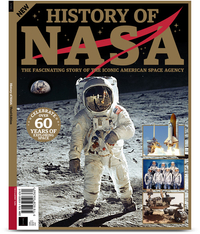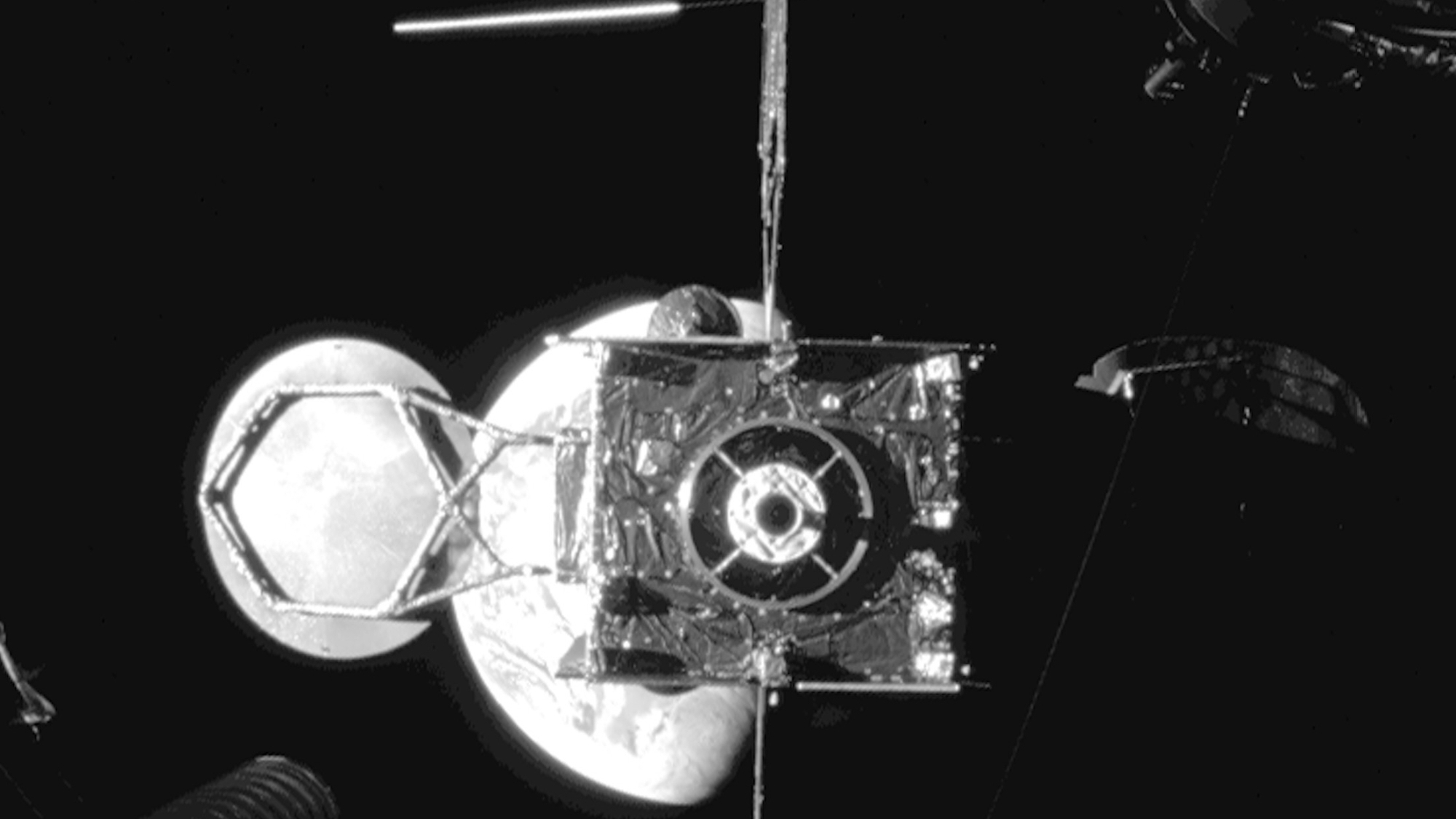NASA hits pause on its Artemis moon lander competition

NASA has put its plan to choose which companies will continue to develop lunar landers for the Artemis moon program on hold.
The agency quietly announced the delay, first reported by the Verge, in a Jan. 27 notice to the three commercial teams participating in the Human Landing System (HLS) program. SpaceX, Blue Origin and Dynetics are developing lunar landers for the agency's Artemis program, which aims to return humans to the moon's surface by 2024. In the new notice, NASA revealed that "a no-cost extension to each of their base period contracts will be required."
NASA awarded the three contracts last year and initially planned to pick two companies to continue on in the competition by Feb. 28. The extension gives the agency until April 30 to make that decision.
Related: NASA unveils plan for Artemis 'base camp' on the moon beyond 2024
History of NASA: $22.99 at Magazines Direct
Discover the story of how and why NASA was created, its greatest triumphs, darkest days, and of the times it exceeded all possible hopes. A tale of adventure, heroism and resourcefulness, learn of the space agency's greatest achievements and how — over six decades — the organization has consistently and tirelessly devoted itself to its founding principle: that "activities in space should be devoted to peaceful purposes for the benefit of all humankind".
The three contracts totaled $967 million in development funds, SpaceX was awarded $135 million and aims to use its Starship reusable vehicle as its lunar lander; Blue Origin was awarded $579 million and is beefing up its Blue Moon lander for humans with a "National Team" made up of Lockheed Martin, Northrop Grumman and Draper; and Dynetics, which is partnering with Sierra Nevada Corp, snagged the last contract, worth $253 million, to develop a new, two-stage vehicle.
The extension does not grant any of the companies extra funding. With this extension, NASA will have additional time to choose what companies might receive awards for developing the landers.
"This extension is an administrative change and allows the three selected U.S. companies to continue HLS design and development activities as set forth in the firms’ base period contracts, awarded in May 2020," NASA stated.
Get the Space.com Newsletter
Breaking space news, the latest updates on rocket launches, skywatching events and more!
This move was expected, according to the Verge, as congressional funding for NASA's Artemis program fell short of requests and as President Joe Biden takes over the executive branch. "NASA's fiscal year 2021 budget request sought $3.3 billion for the program, but the final omnibus appropriations bill enacted in December provided $850 million," SpaceNews wrote about the Artemis funding shortage being the main reason behind the decision to postpone this next phase in narrowing down the lander contracts
Now, while $850 million is far less than the $3.3 billion NASA hoped for to stay on track with their ambitious aim to land humans on the moon by 2024, the agency is still "shooting for the 2024 timeframe," Kathy Lueders, the NASA associate administrator for human exploration and operations, said at a Jan. 14 NASA Advisory Council meeting, according to Space News.
The Biden administration has not yet commented on its plans for the agency or whether it will adhere to the 2024 lunar deadline set by former President Donald Trump's administration, however, the Democratic Party's platform referenced returning humans to the moon, according to SpaceNews.
Email Chelsea Gohd at cgohd@space.com or follow her on Twitter @chelsea_gohd. Follow us on Twitter @Spacedotcom and on Facebook.
Join our Space Forums to keep talking space on the latest missions, night sky and more! And if you have a news tip, correction or comment, let us know at: community@space.com.

Chelsea “Foxanne” Gohd joined Space.com in 2018 and is now a Senior Writer, writing about everything from climate change to planetary science and human spaceflight in both articles and on-camera in videos. With a degree in Public Health and biological sciences, Chelsea has written and worked for institutions including the American Museum of Natural History, Scientific American, Discover Magazine Blog, Astronomy Magazine and Live Science. When not writing, editing or filming something space-y, Chelsea "Foxanne" Gohd is writing music and performing as Foxanne, even launching a song to space in 2021 with Inspiration4. You can follow her on Twitter @chelsea_gohd and @foxannemusic.










